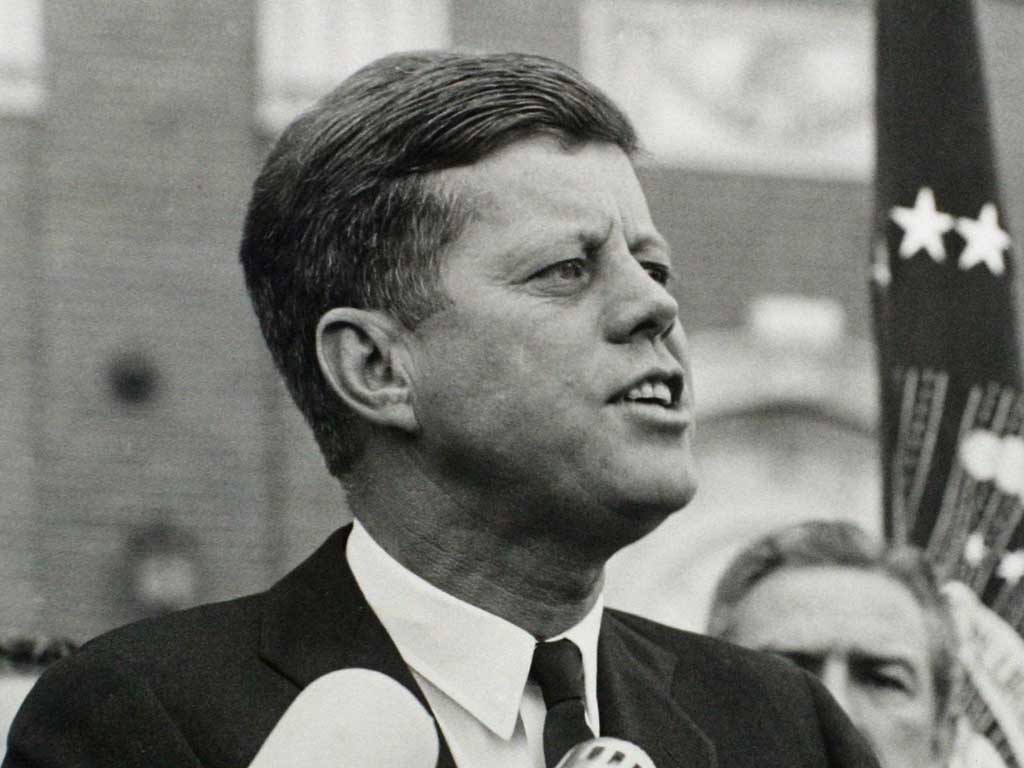Kennedy’s assassination had such an impact that even those of us who were very young at the time carry the memory with us
What it was like to be six years old on that day in November 1963


With every passing year, the where-were-you-when-Kennedy-was-shot question is relevant to fewer and fewer people. The number who remember the assassination is dwindling, and you couldn’t be much younger than me – 56 – to scrape in. Basing my calculation on figures from the US Census Bureau, those aged 56 or over now represent somewhere between 12 and 15 per cent of the global population.
I’ve often pondered the accident of birth that meant that, exactly 50 years ago, I was just old enough for my imagination to be receptive to the single most seismic, shocking peacetime event of the 20th century. “Personal” memories of early childhood are one thing – of getting lost, say, and the fear that goes with it – but memories of a public event are different. I guess by the age of six one is becoming dimly aware that there is an outside world, but it still takes something pretty remarkable to penetrate such a young consciousness so deeply.
Other generations have their own Kennedy moments of course. For my daughters, it is the death of Princess Diana in 1997 (they were six and three at the time). Four years later they were absorbing 9/11.
So what do I mean by “remember”? I think it is partly a memory of the atmosphere that prevailed that weekend. My mother was distressed, and that made an impact on me, not least because I couldn’t understand why. I have one very clear and specific memory of a television image, and it is of Jackie Kennedy, in her black veil, standing at her husband’s graveside in Arlington Cemetery. We watched Kennedy’s funeral on a TV set my parents had acquired only the year before.
Did I ask questions about who Kennedy was and why all this mattered? I doubt it. But I didn’t need to ask questions in order to register that something very disturbing had happened, that it had cast a shadow over everything, and changed the world, and that it had occurred in a place that was the big “out there”, far beyond the Home Counties housing estate and primary school that represented the limits of my existence.
The myth of the 1960s is in part built on the magnitude of its news events, and what followed on from Kennedy left no doubt that one was growing up through a kind of hyper-History, a process that went hand in hand with the birth of the mass media. We worry in 2013 about children and teenagers spending too long in front of screens, but when I was growing up I watched TV for hour upon hour. And many a night, it seemed, something dramatic was happening on the global stage.
Did Kennedy sharpen one’s awareness of the real world? My earliest sporting memory dates from the following year, the Tokyo Olympic Games of 1964 – or at least the BBC theme tune that accompanied its coverage, which I can still hear in my mind’s ear now. First football memory – the 1966 World Cup. That same year was the Aberfan disaster, which was something I suspect my parents tried to shield me from – the death of children my own age. In 1967 there was the Beatles singing “All You Need Is Love” on the “Our World” global TV link-up. In 1968 came the assassinations of Martin Luther King and Bobby Kennedy – the latter event the first time I heard a newsreader warning viewers that we might find the pictures upsetting. There was Vietnam. Finally, the culmination of a boyhood of wide-eyed wonder – the Moon landing in 1969.
It has since struck me that my generation was curiously blessed in its formative years. Not in the way that the teenagers and young adults of the era were, but in the strict sense of being children of the 60s – in my case aged two when they began, 12 when they finished. I was making sense of the world, and the amount there was to make sense of was extraordinary.
I still have in my possession copies of The Times for the three days that followed Kennedy’s death. Like a lot of other people, my mother kept them, and one day years later she passed them on to me. I look at them from time to time, and I’m looking at them again now – a connection to a moment that, for me, marked a kind of awakening.
Join our commenting forum
Join thought-provoking conversations, follow other Independent readers and see their replies
Comments